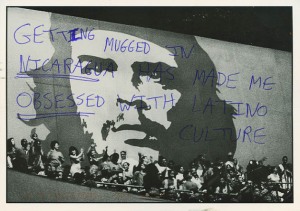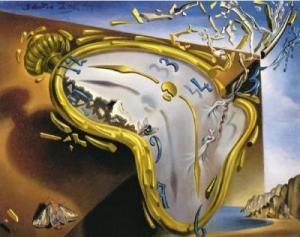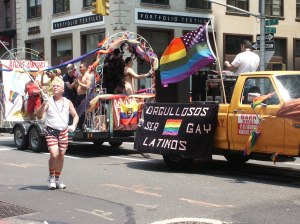Here’s a quick shout out to Frankie, Ankhesen, Ulises, and Chris for their comments on my recent posts. Thank you all, and thanks to everyone who shares his or her thoughts here.
But now let me backtrack a little.
Recently, I used my cyber bully pulpit to disparage comedian George Lopez and, by extension, anyone who thinks that he’s funny. I’m not backing down on my criticism, but I need to qualify it.
You see, I’ve written much about the positive aspects of Latino culture, such as our strong familial ties and powerful work ethic and openness to share emotions and many other good and true characteristics.
But I’ve also written about some less uplifting traits. And to that list, I have to add one more item:
We’re not particularly funny people.
I realize this is a gross generalization. I’m sure that plenty of Latinos are hilarious. It’s just that I haven’t met them or seen them on television or watched their stand-up routines.
We have to be honest and say that no Hispanic has ever really made America laugh, except maybe Cheech Marin, and he put the low in low-brow.
Indeed, the first Hispanic sitcom, back in the 1980s, was “Aka Pablo,” starring Paul Rodriguez. It was such a monumental flop that Latinos have been rare on comedies ever since (by the way, my hatred for this short-lived show is so intense that it demands a full post sometime).
The first Hispanic comedian to receive any kind of mainstream success in America was Cantinflas, a star from the 1950s. You are forgiven if you don’t know who he is. The guy seems to be more of poor man’s Charlie Chaplin than anything else.
One could argue that Latino culture’s history of death, destruction, and poverty does not lend itself to big laughs. That may be true, but then what do we make of the fact that some of the most insightful and cutting comedians of the last few decades have been black? Think of the line from Richard Pryor to Chris Rock and beyond. African Americans, of course, have just as much, if not more, misery in their collective backgrounds. They have apparently been better able to mine this history to create cutting-edge observations.
As a result, black people have Dave Chappelle. We have Carlos Mencia. That contrast is just depressing.
Similarly, a look at Jewish comedy reveals such heavy hitters as Woody Allen, Jerry Seinfeld, Judd Apatow, and others too numerous to mention. We’re talking about decades of mainstream success across a wide range of styles. And of course, Jews have endured one or two negative developments over the course of their cultural history. It hasn’t stopped them from coming up with a witty line now and then.
So why aren’t we funnier? I haven’t the slightest idea. But with this blog, I’ve tried to avoid becoming a writer who is, in the words of the great humorist Spalding Gray, so very “earnest, earnest, earnest.” That seems to be the default setting for many Latinos (and many bloggers, while we’re at it). By the way, Spalding Gray was a white guy.
In any case, the situation for Latino humor is grim… hey, I guess that was a joke, given the subject matter.
Yes, as you can see, you don’t want me to accept the challenge to be the comedic Latino. I’m just not that funny.












